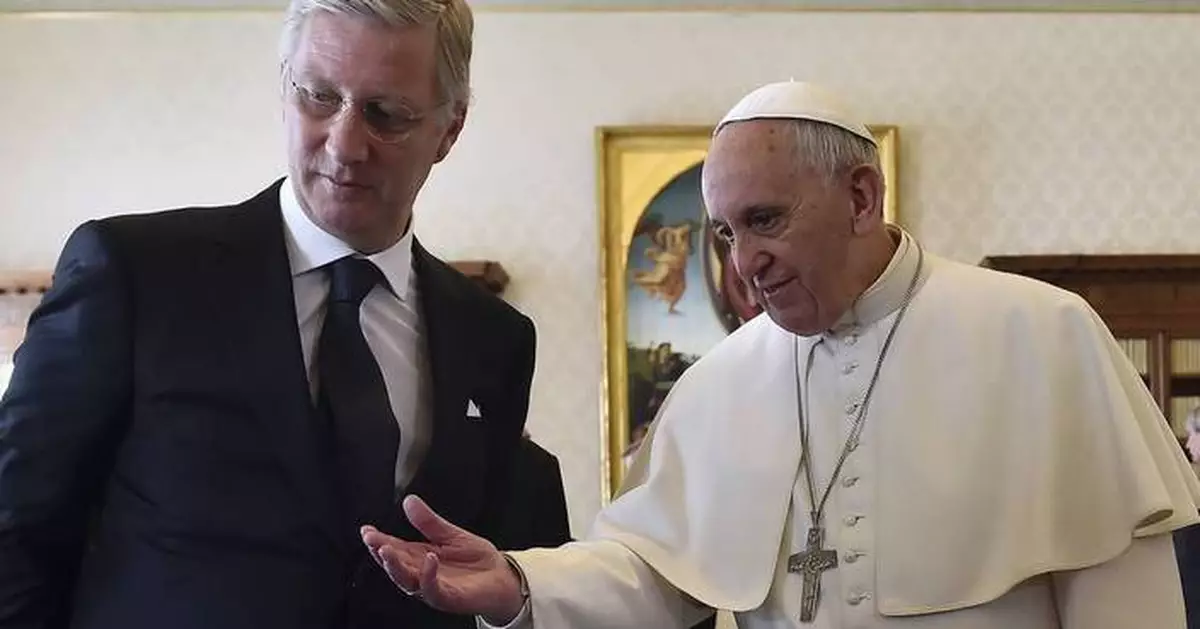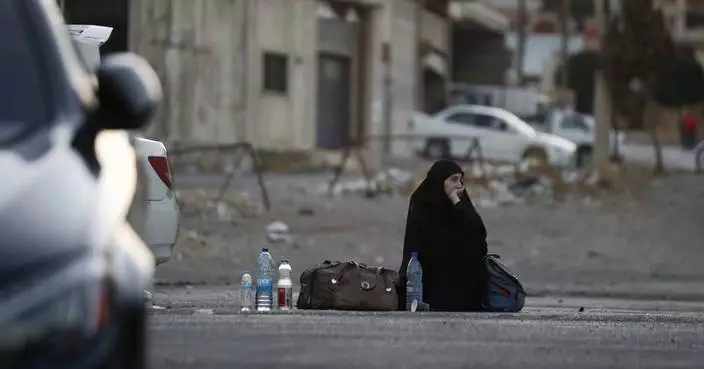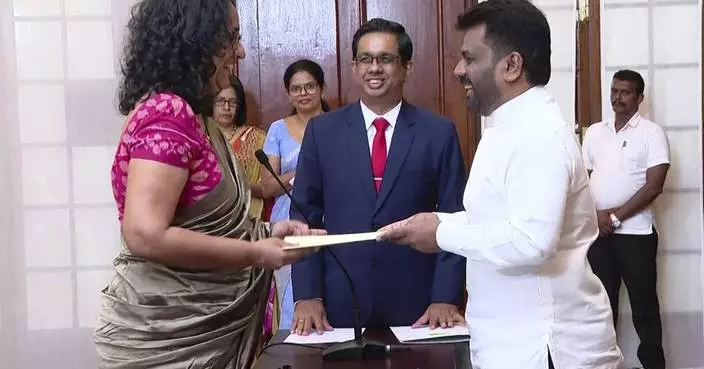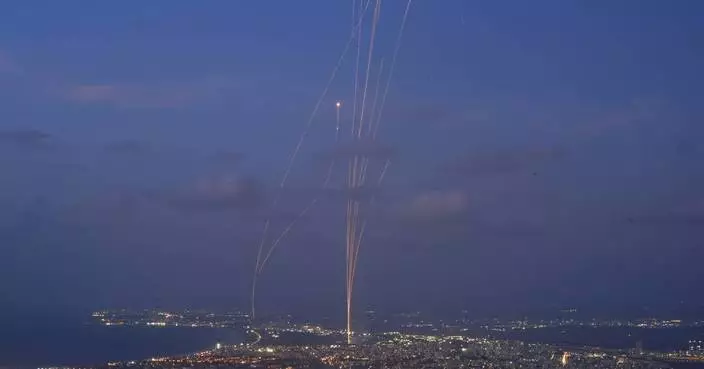VATICAN CITY (AP) — Fresh off a four-nation tour of Asia, where he saw record-setting crowds and vibrant church communities, Pope Francis travels to Belgium this week as the once-staunchly Catholic country again confronts its appalling legacy of clergy sex abuse and institutional cover-up.
He will receive a sobering welcome: Abuse survivors have penned an open letter to Francis, asking him to launch a universal system of church reparations and assume responsibility for the wreckage that abuse has wrought on their lives.
Click to Gallery
FILE — Pope Francis, left, greets Belgium's King Philippe, center, and Belgium's Queen Mathilde, at the end of a private audience at the Vatican, Monday, March 9, 2015. (AP Photo/Gabriel Bouys, Pool, File)
VATICAN CITY (AP) — Fresh off a four-nation tour of Asia, where he saw record-setting crowds and vibrant church communities, Pope Francis travels to Belgium this week as the once-staunchly Catholic country again confronts its appalling legacy of clergy sex abuse and institutional cover-up.
FILE -- Pope John Paul II is cheered as he passes the Basilica of Koekelberg in Brussels Sunday June 4, 1995, during a ceremony to beatify Belgian priest Father Damien De Vuester, who lived and died amongst the lepers of Hawaii during the 19th century. (AP Photo/Massimo Sambucetti, File)
FILE - Bishop of Bruges Roger Vangheluwe, in Bruges, Belgium, on Feb. 15, 2007. (AP Photo/Peter Maenhoudt, File)
FILE -- Belgian Cardinal Godfried Danneels walks past a poster of Pope John Paul II, right, as he leads a memorial Mass for Pope John Paul II at the St. Michael church in Brussels, Sunday April 3, 2005. (AP Photo/Virginia Mayo, File)
FILE — Pope Francis, left, greets Belgium's King Philippe, center, and Belgium's Queen Mathilde, at the end of a private audience at the Vatican, Monday, March 9, 2015. (AP Photo/Gabriel Bouys, Pool, File)
FILE -- Pope Francis, right, talks with Belgium's King Philippe during a private audience at the Vatican, Monday, March 9, 2015. (AP Photo/Gabriel Bouys, Pool, File)
The open letter, a copy of which was obtained by The Associated Press, will be hand delivered to Francis when he meets with 15 survivors during his four-day visit starting Thursday, according to the Rev. Rik Deville, who has been advocating on behalf of abuse survivors for over a quarter-century.
Another unpleasant welcome has come from Belgium’s parliament, which spent the past year hearing victims recount harrowing stories of predator priests and this week announced a follow-on investigation. The scope? How Belgian judicial and law enforcement authorities bungled a massive 2010 criminal investigation into the church’s sex crimes.
None of this was foreseen when Belgian King Philippe and Queen Mathilde met with Francis in the Vatican Apostolic Palace on Sept. 14, 2023 and invited him to visit to commemorate the 600th anniversary of the founding of Belgium’s two Catholic universities.
That anniversary is technically the reason for Francis’ trip, which also includes a stopover in Luxembourg on Thursday and a Mass on Sunday in Brussels to beatify a 17th century mystic nun.
And in Belgium, Francis will speak about two of his pet priorities during visits to the French and Flemish campuses of the Leuven university: Immigration and climate, according to Vatican spokesman Matteo Bruni.
But Bruni acknowledged in a rare preview that Francis will certainly raise Belgium’s abuse record.
“Clearly the pope is aware of the difficulty, and that for years there has been suffering in Belgium, and certainly we can expect a reference in this sense,” Bruni said.
Revelations of Belgium’s horrific abuse scandal have dribbled out in bits over a quarter-century, punctuated by the bombshell year in 2010, when the country's longest-serving bishop, Bruges Bishop Roger Vangheluwe, was allowed to resign without punishment, after admitting he had sexually abused his nephew for 13 years.
Two months later, Belgian police staged what were then unprecedented raids on Belgian church offices, the home of the country’s recently retired Archbishop Godfried Danneels and even the crypt of a prelate — a violation the Vatican decried at the time as “deplorable.”
Danneels, a longtime friend of Francis, was caught on tape trying to persuade Vangheluwe’s nephew to keep quiet until the bishop retired. And finally, in September 2010, the church released a 200-page report compiled by child psychiatrist Peter Adriaenssens who said 507 people had come forward with stories of being molested by priests, including when they were as young as two. He identified at least 13 suicides by victims and attempts by six more.
And despite everything that was known and already in the public domain, the scandal reared its head in a shocking new way last year, when a four-episode Flemish documentary, “Godvergeten” (Godforsaken) aired on public broadcaster VRT in the weeks surrounding the royal visit to the Vatican.
For the first time, Belgian victims told their stories on camera one after another, showing Flemish viewers in their living rooms the scope of the scandal in their community, the depravity of the crimes and their systematic cover-up by the Catholic hierarchy.
“We brought nothing new. We just put it all together. We brought the voices together,” said Ingrid Schildermans, the researcher and filmmaker behind Godvergeten. “We put all the things that happened on a timeline, so that they couldn't say ‘It’s one rotten apple.’”
“That was the thing that the documentary made clear, like this really is a system and there are really people who look away or people don’t care,” she said in an interview.
Amid the public outrage that ensued, both a Flanders parliamentary committee and Belgium’s federal parliament opened official inquests and heard months of testimony from victims, experts and the Catholic hierarchy.
Their testimonies cast new attention on a scandal that had already been blamed for the steep decline in the Catholic Church over a generation in Belgium, where church authorities don't even publish statistics of weekly Mass attendance because the monthly rate is already in the single digits.
By March, with a papal visit already announced, Francis finally took action and defrocked Vangheluwe, 14 years after he admitted to molesting his nephew. The laicization was seen as a clear bid by the Vatican to tamp down the outrage and remove an obvious problem clouding Francis' visit.
The parliamentary inquiries wrapped up in May, before the country’s elections. But one issue remained outstanding: What ever became of Operation Chalice, the much-touted police raids on Danneels' residence and other church offices in 2010.
Hundreds of boxes of documents that police seized were ordered returned to the church in 2014, and the criminal investigation essentially shelved, according to victims' lawyers Christine Mussche and Walter Van Steenbrugge. They have denounced what they call a “hallucinatory sequence of irregularities and illegalities (that) has decapitated the investigation and deprived survivors of clerical sexual abuse of their fundamental right to a fair trial.”
The parliamentary inquest, as part of its mandate, had been looking into the “possible dysfunctions" in the criminal investigation and specifically whether there was “any political, financial, national or foreign interventions, instigation, pressure and influence,” on the failed case.
Because the investigation didn’t conclude before new elections, a follow-on investigation was announced Tuesday looking into “Operation Chalice.”
All of which has left a rather bitter taste among the Belgian public ahead of Francis' visit, not least because Francis remained tight with Danneels even after his cover-up was exposed, and again showed ignorance of Belgium's problem when he named the retired bishop of Ghent a cardinal in 2022. The bishop declined the honor because of his poor record dealing with abuse.
The visit has also in some cases retraumatized victims, some of whom had sought to meet with the pope only to be told by church authorities they didn't make the cut, said Schildermans.
“It’s for them a very, very stressful and frustrating time,” she said.
It's a far different atmosphere than the rapturous welcome Francis received in Asia less than two weeks ago and far removed from the excitement that surrounded St. John Paul II when he toured Belgium in 1985.
Even De Standaard, one of Belgium’s main dailies which long was seen as the most Catholic, had a big weekend takeout under the headline “How revolutionary is Pope Francis really?” The dead giveaway: Not really.
Tuesday brought further evidence of how Belgium's dreadful record of abuse, cover-up and insensitivity to victims had clouded Francis' visit.
Bishop Patrick Hoogmartens of northern Limburg announced he wouldn't take part in celebratory papal events, after revelations that he had just warmly eulogized a priest who was known to have been involved in an abuse case.
“I didn’t make the assessment that it would hurt an abuse victim from the 1970s,” he told TV Limburg.
Casert reported from Brussels.
Associated Press religion coverage receives support through the AP’s collaboration with The Conversation US, with funding from Lilly Endowment Inc. The AP is solely responsible for this content.
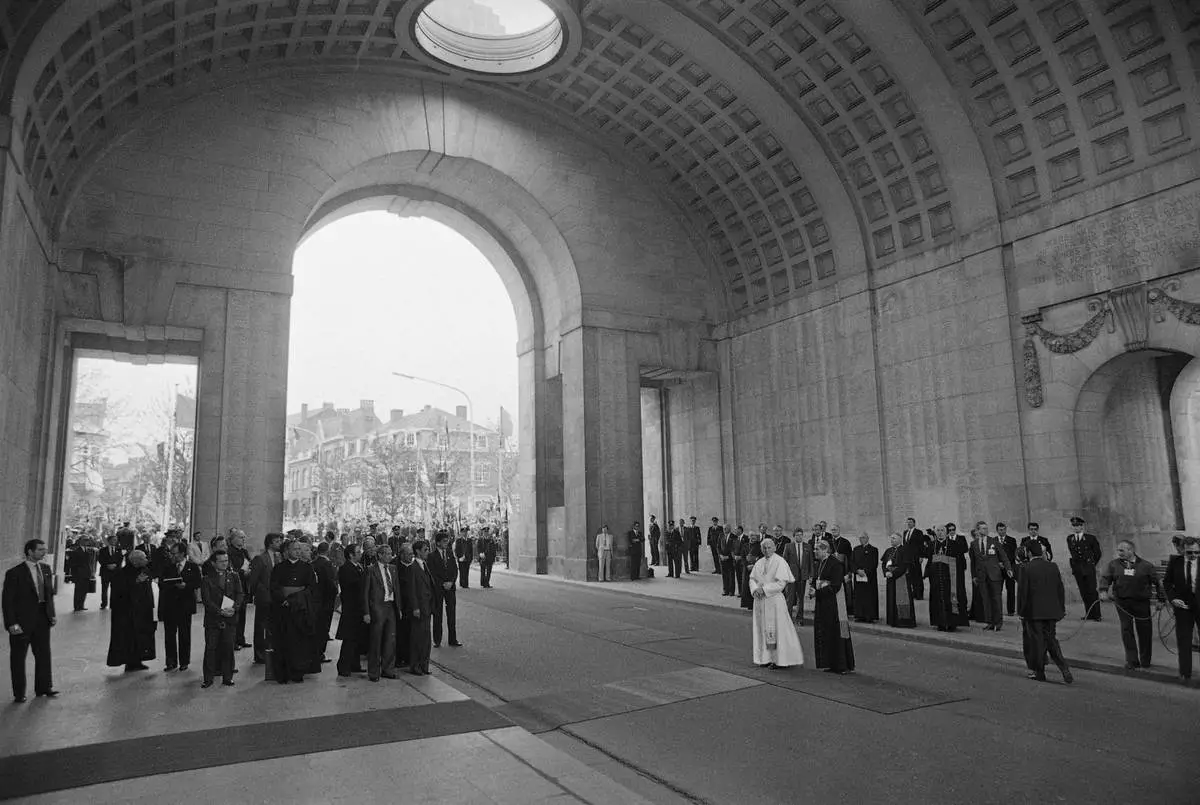
FILE -- Pope John Paul II stands underneath the huge bow of the Menen Gate, a war memorial for the dead of World War II, in Ieper, May 17, 1985, on his second day in Belgium. (AP Photo, File)
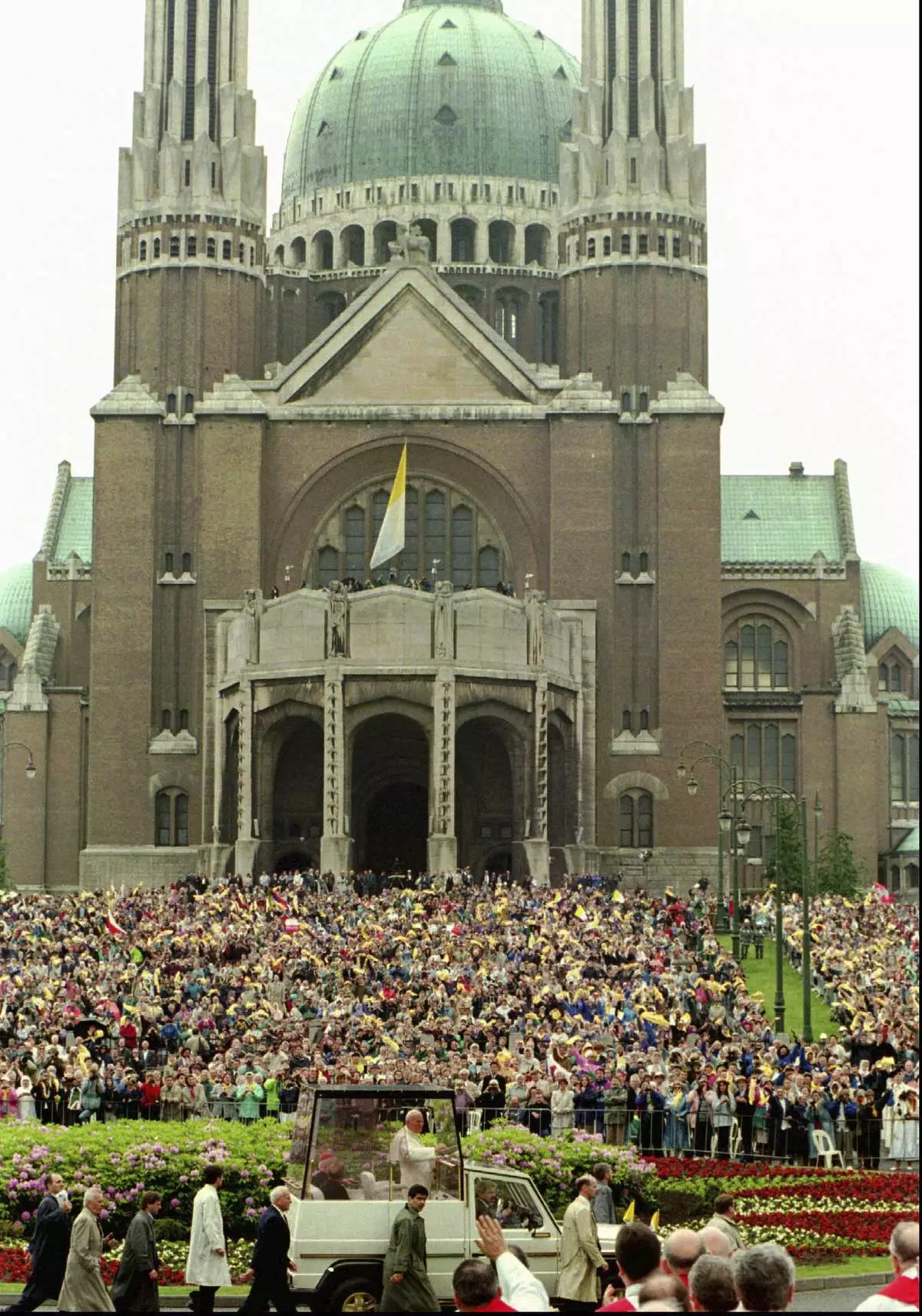
FILE -- Pope John Paul II is cheered as he passes the Basilica of Koekelberg in Brussels Sunday June 4, 1995, during a ceremony to beatify Belgian priest Father Damien De Vuester, who lived and died amongst the lepers of Hawaii during the 19th century. (AP Photo/Massimo Sambucetti, File)
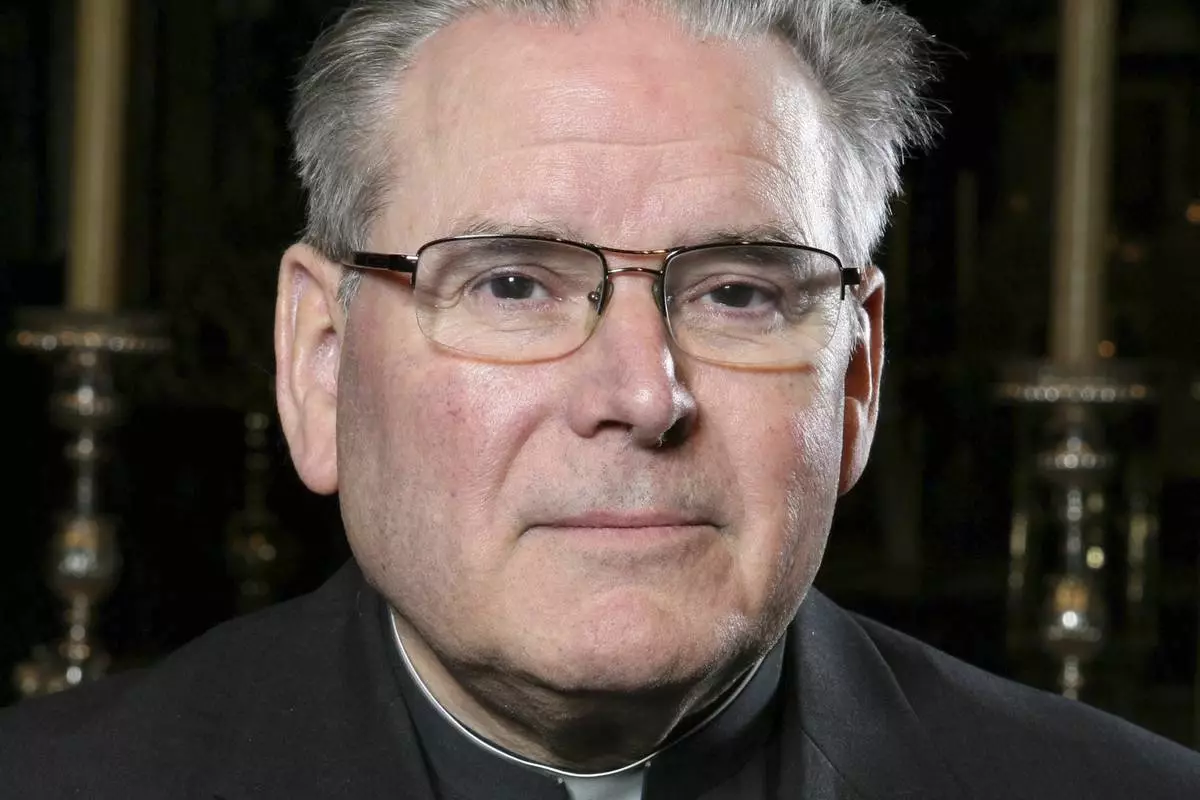
FILE - Bishop of Bruges Roger Vangheluwe, in Bruges, Belgium, on Feb. 15, 2007. (AP Photo/Peter Maenhoudt, File)
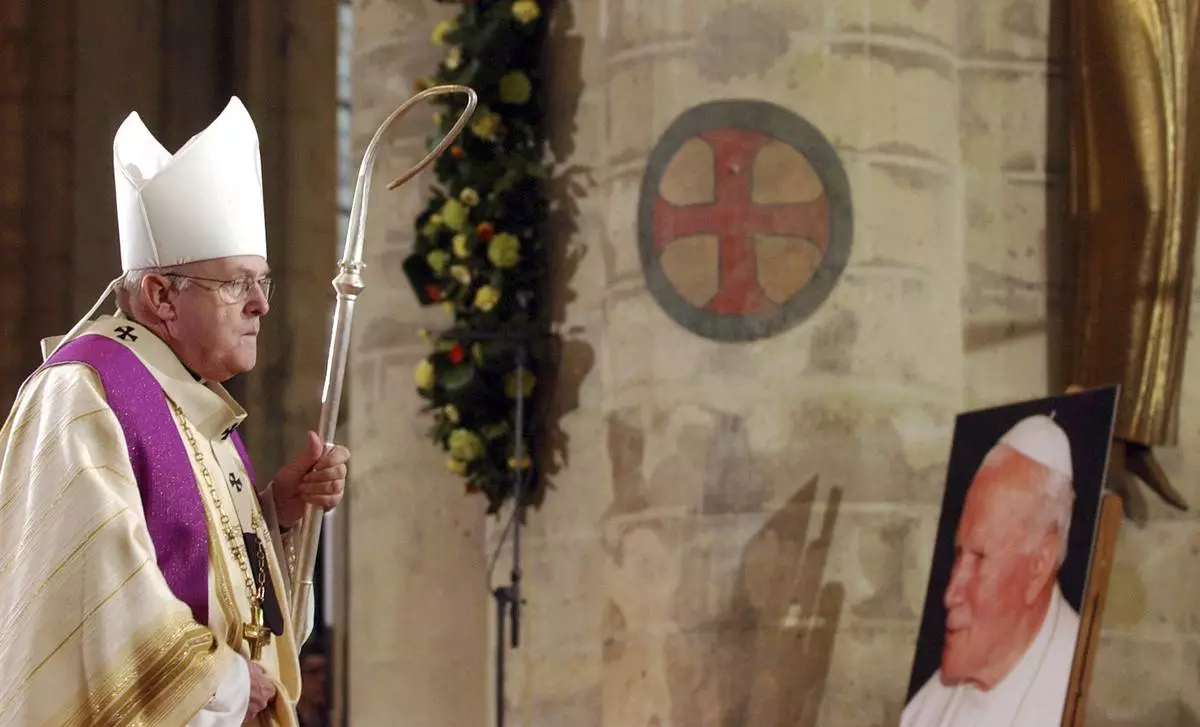
FILE -- Belgian Cardinal Godfried Danneels walks past a poster of Pope John Paul II, right, as he leads a memorial Mass for Pope John Paul II at the St. Michael church in Brussels, Sunday April 3, 2005. (AP Photo/Virginia Mayo, File)
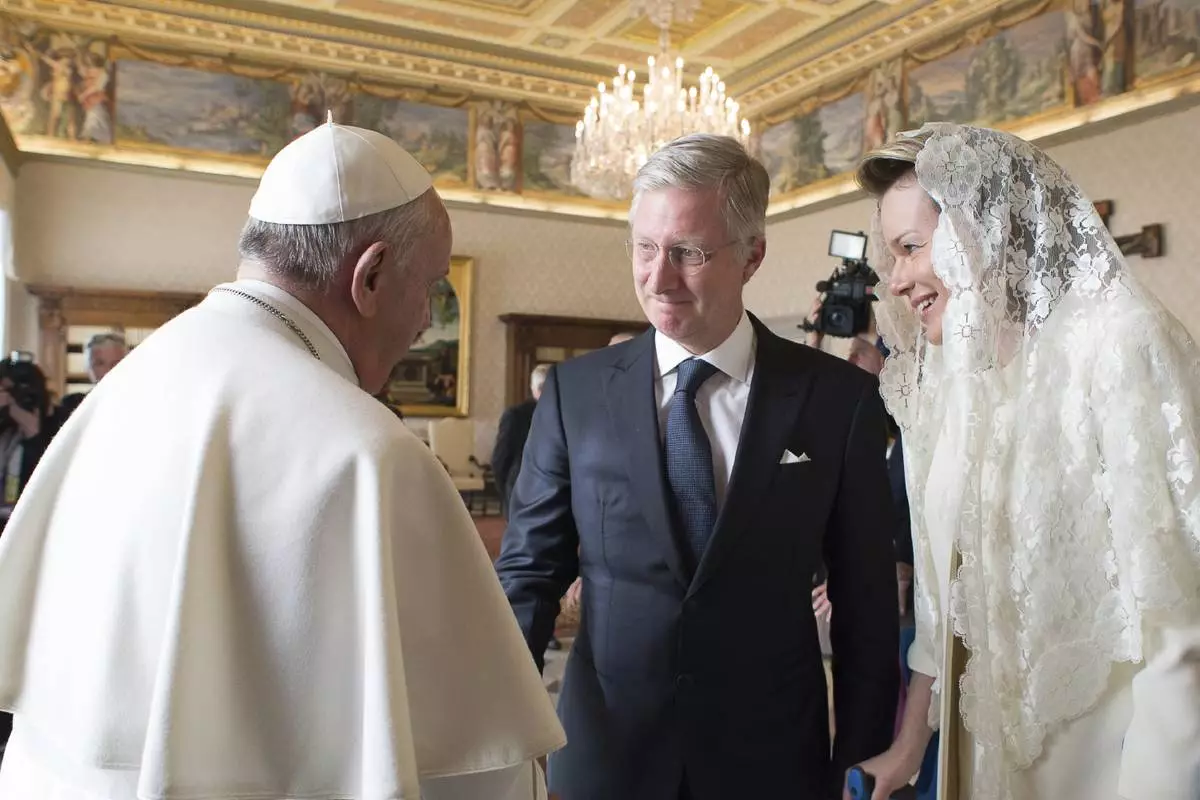
FILE — Pope Francis, left, greets Belgium's King Philippe, center, and Belgium's Queen Mathilde, at the end of a private audience at the Vatican, Monday, March 9, 2015. (AP Photo/Gabriel Bouys, Pool, File)
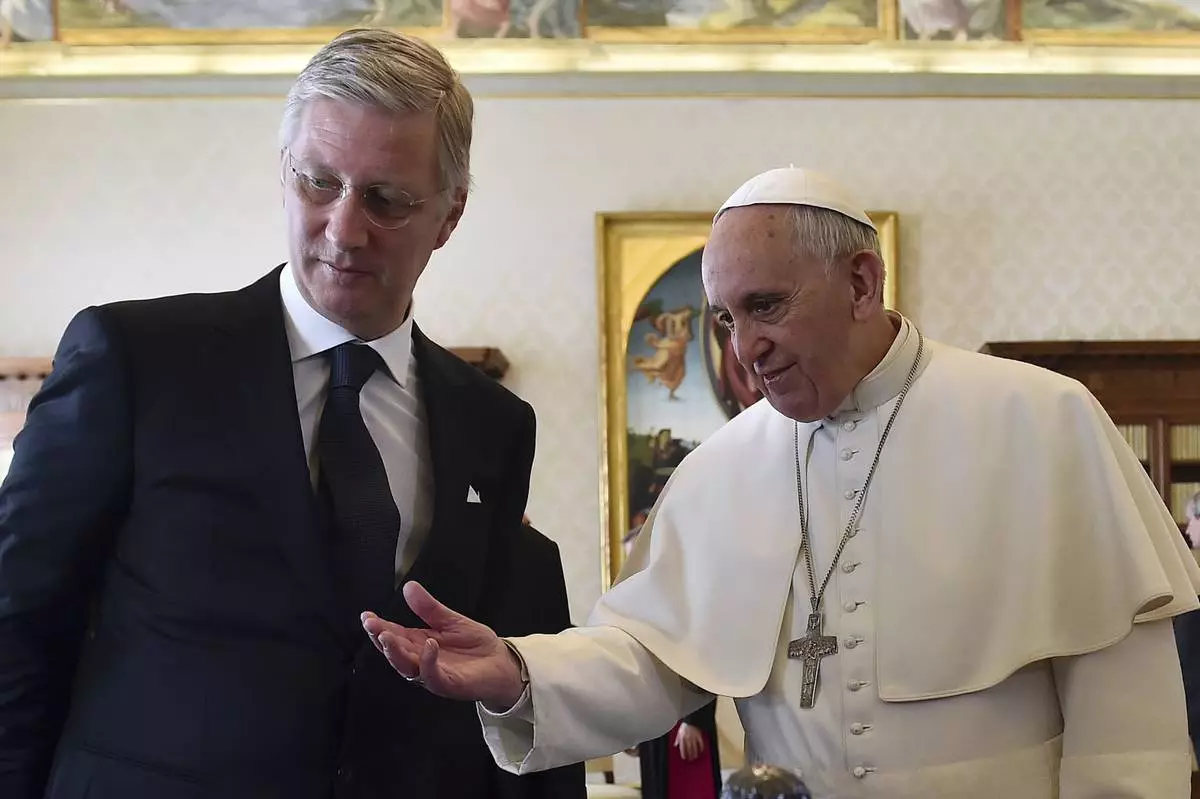
FILE -- Pope Francis, right, talks with Belgium's King Philippe during a private audience at the Vatican, Monday, March 9, 2015. (AP Photo/Gabriel Bouys, Pool, File)
PREK TAKEO, Cambodia (AP) — The Mekong River is a lifeline for millions in the six countries it traverses on its way from its headwaters to the sea, sustaining the world’s largest inland fishery and abundant rice paddies on Vietnam's Mekong Delta.
Cambodia's plan to build a massive canal linking the Mekong to a port on on its own coast on the Gulf of Thailand is raising alarm that the project could devastate the river's natural flood systems, worsening droughts and depriving farmers on the delta of the nutrient-rich silt that has made Vietnam the world's third-largest rice exporter.
Cambodia hopes that the $1.7 billion Funan Techo canal, being built with Chinese help, will support its ambition to export directly from factories along the Mekong without relying on Vietnam, connecting the capital Phnom Penh with Kep province on Cambodia's southern coast.
At an Aug. 5 groundbreaking ceremony, Cambodian Prime Minister Hun Manet said the canal will be built “no matter what the cost.” By reducing costs of shipping to Cambodia's only deep-sea port, at Sihanoukville, the canal will promote, “national prestige, the territorial integrity and the development of Cambodia,” he said.
Along with those promises comes peril. Here is a closer look.
The Mekong River flows from China through Myanmar, Thailand, Laos, Cambodia and Vietnam. It supports a fishery that accounts for 15% of the global inland catch, worth over $11 billion annually, according to the nonprofit World Wildlife Fund. Flooding during the wet season makes the Mekong Delta one of the world's most productive farm regions.
The river already has been disrupted by dams built upstream in Laos and China that restrict the amount of water flowing downstream, while rising seas are gnawing away at the southern edges of the climate-vulnerable Mekong Delta.
Brian Eyler, director of the Washington-based Stimson Center’s Southeast Asia Program, warns that high embankments along the 100-meter (328 feet)-wide, 5.4-meter (17.7 feet)-deep canal will prevent silt-laden floodwater from flowing downstream to Vietnam. That could worsen drought in Vietnam's rice bowl and Cambodia's floodplains, an area stretching over roughly 1,300-square kilometers (501 square miles).
A drier Mekong Delta is a concern for Vietnam’s agricultural sector, which powers 12% of its economy. The southwestern provinces of An Giang and Kien Giang would likely be most impacted. The delta's latticework of rivers crisscrossing green fields is vital for Vietnam’s own plans of growing “high quality, low emission rice” on 1 million hectares of farmland by 2030. The aim is to cut earth-warming greenhouse gases, lower production costs and increase farmers’ profits.
Water from the river is “essential” not just for Vietnam's more than 100 million people but also for global food security, said Nguyen Van Nhut, director of rice export company Hoang Minh Nhat.
Vietnam’s exports of 8.3 million metric tons (9.1 U.S. tons) of rice in 2023 accounted for 15% of global exports. Most was grown in the Mekong Delta. The amount of silt being deposited by the river has already dropped and further disruptions will worsen salinity in the area, hurting farming, Nhat said.
“This will be a major concern for the agriculture sector of the Mekong delta,” he said.
Cambodia says the canal is a “tributary project” that will connect to the Bassac River near Phnom Penh. President Hun Sen claimed on social media platform X that this means there would be “no impact on the flow of the Mekong River.”
But blueprints show the canal will connect to the Mekong's mainstream and in any case the Bassac consists entirely of water from the Mekong, Eyler said.
Cambodian authorities are downplaying the potential environmental impacts of the project. “This is their logic-defying basis for justifying no impact to the Mekong River,” he said.
A document submitted in August 2023 to the Mekong River Commission — an organization formed for cooperation on issues regarding the Mekong — does not mention using water from the canal for irrigation, though Cambodia has since said it plans to do so. The Stimson Center added it was “logical” that irrigation would be needed during dry months, but that would require negotiating an agreement with the other Mekong countries.
The Mekong River Commission told The Associated Press all major projects on the Mekong River “should be assessed for their potential transboundary impacts.” It said it was providing technical support to “increase transparency and cooperation among concerned countries.”
Sun Chanthol, the Cambodian deputy prime minister who oversees the project, didn’t respond to a request for comments.
Cambodia has rejected criticism of the canal, which is widely seen as an effort by the country's ruling elite to curry support for Prime Minister Hun Manet, who succeeded his father Hun Sen, who led Cambodia for 38 years.
The canal is to be built jointly by Chinese state-owned construction giant China Road and Bridge Corporation and Cambodian companies. But it is enveloped in nationalistic rhetoric. The canal would provide Cambodia a “nose to breathe through” by reducing its dependence on Vietnam, Hun Sen has said.
Vietnam has avoided openly criticizing its neighbor, instead communicating its concerns quietly. Vietnamese Foreign Ministry spokesperson Pham Thu Hang said at a press conference in May that Hanoi had asked Cambodia to share information and assess the environmental impacts of the project to “ensure the harmony of interests” of Mekong countries.
Many Cambodians remain suspicious of Vietnam’s intentions, believing it may want to annex Cambodian territory. Given the contentious past between the two countries, bigger and richer Vietnam is taking care not to appear to be impinging on Cambodian sovereignty, said Nguyen Khac Giang, an analyst at Singapore’s ISEAS-Yusof Ishak Institute.
"Although in Vietnam, there are big concerns,” he said.
Lost in Cambodia's nationalistic rhetoric are the concerns of people like Sok Koeun, 57, who may lose her home.
The tin-roofed cottage where she has lived with her family since 1980 is right where the canal is due to be built. The river provides her with fish to feed her family when she struggles to get by selling sugarcane juice and recycling plastic cans.
No one has been in touch, she says, to answer her mounting questions: Will she get compensated? Will she get land? Or cash? Where will they go?
“I only learned about it (the canal) just now,” she said.
The Associated Press’ climate and environmental coverage receives financial support from multiple private foundations. AP is solely responsible for all content. Find AP’s standards for working with philanthropies, a list of supporters and funded coverage areas at AP.org.
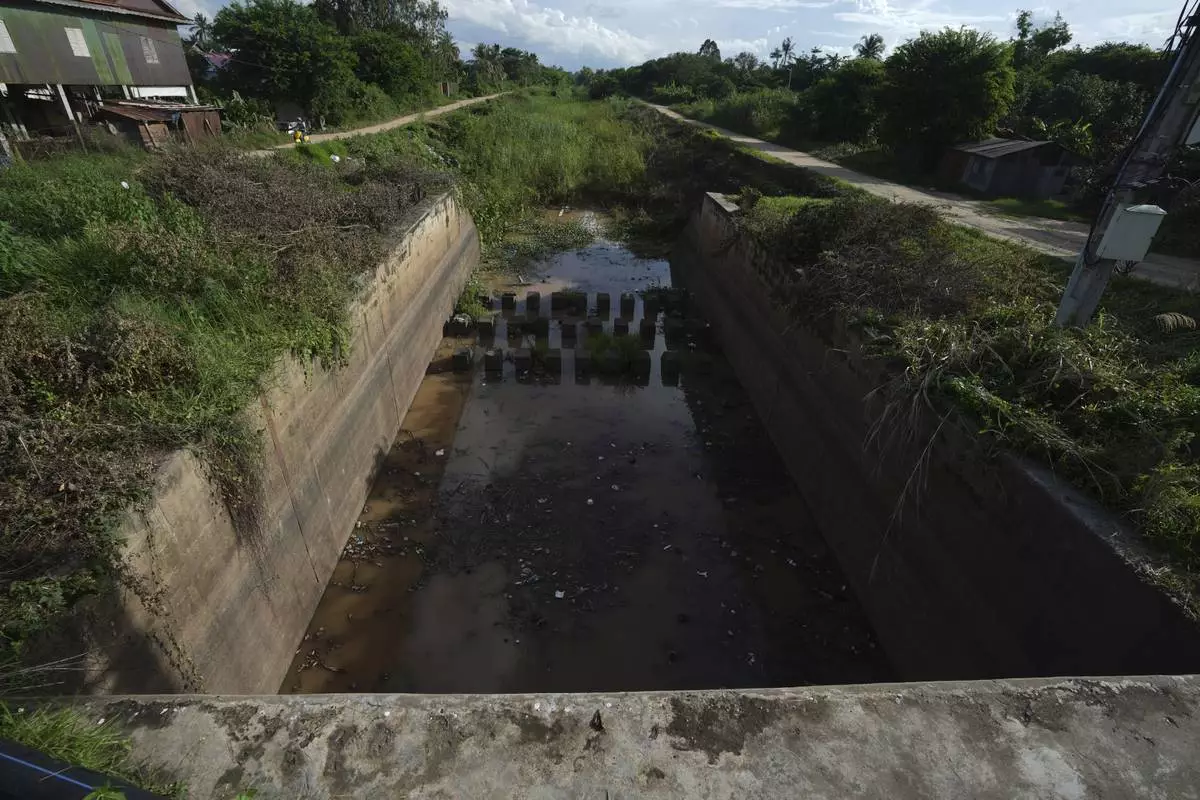
A water gate to the Funan Techo Canal is seen at Prek Takeo village, eastern Phnom Penh, Cambodia, Tuesday, July 30, 2024. (AP Photo/Heng Sinith)
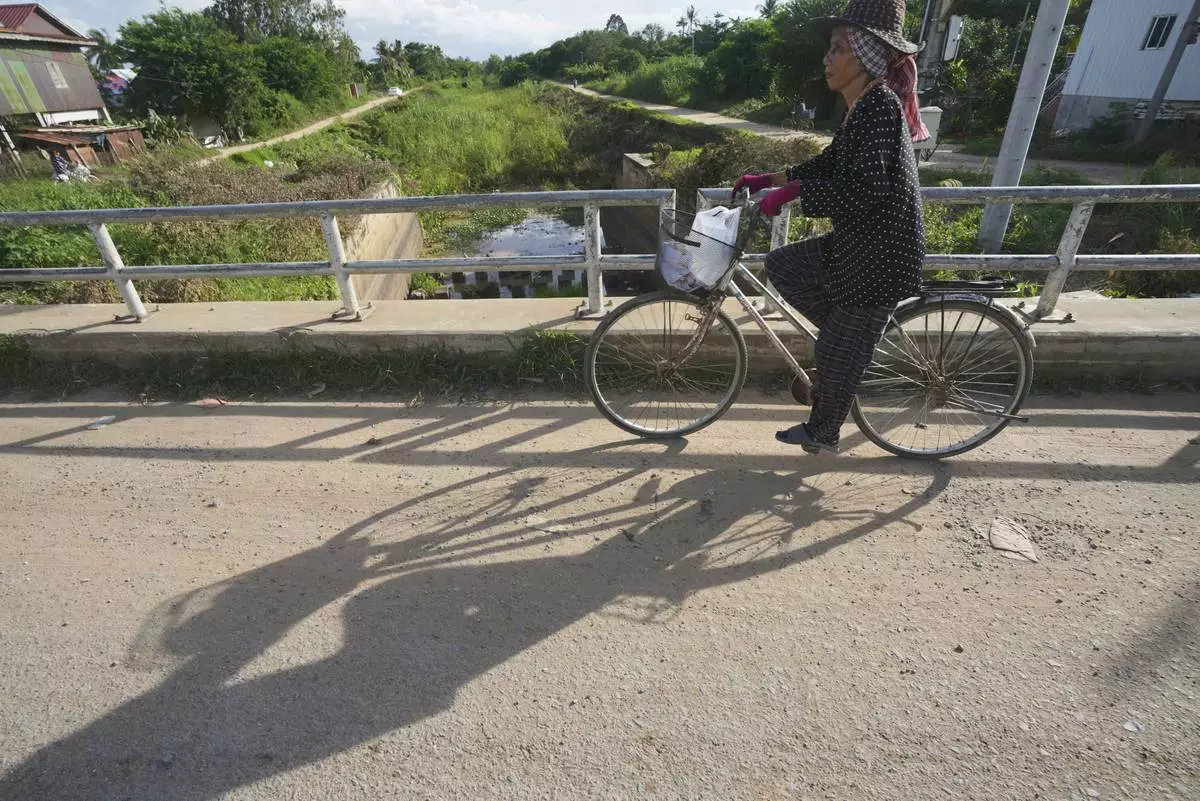
A villager who lives along the Funan Techo Canal rides a bicycle past a bridge at Prek Takeo village, eastern Phnom Penh Cambodia, Tuesday, July 30, 2024. (AP Photo/Heng Sinith)
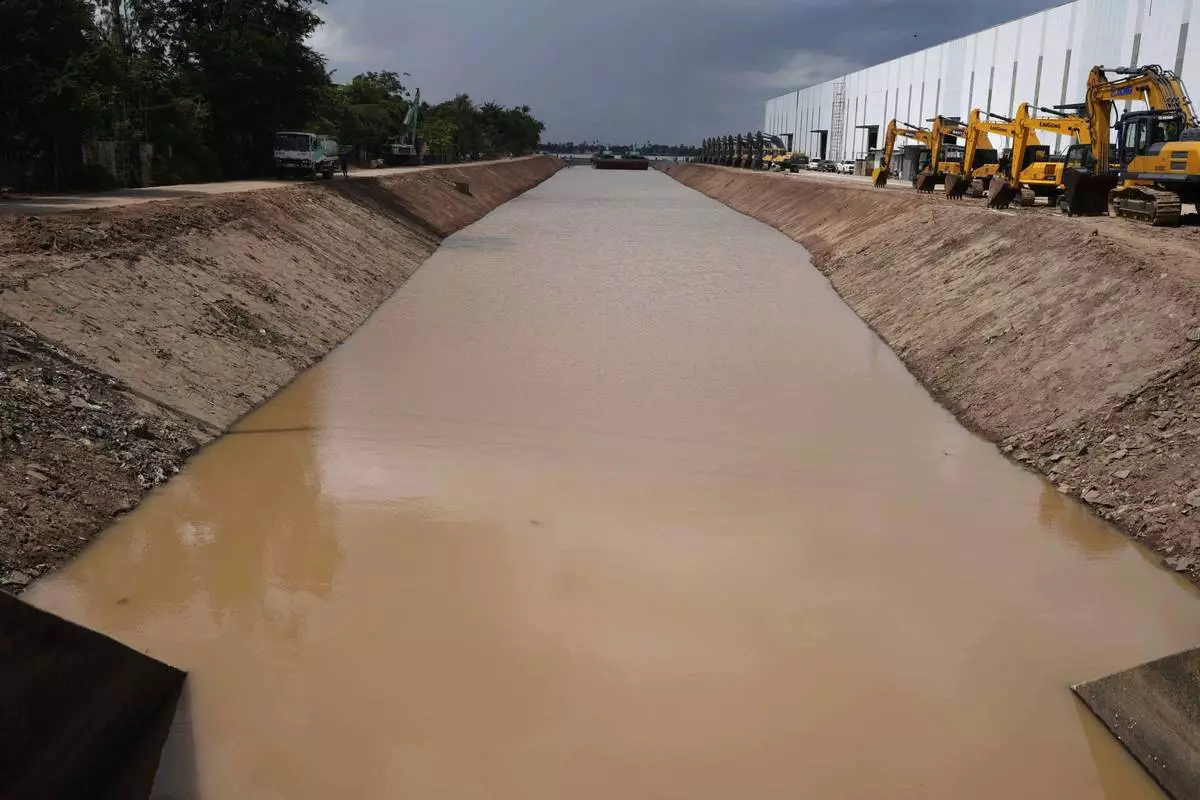
A view from a water gate to the Funan Techo Canal connecting from Mekong River at Prek Takeo village, eastern Phnom Penh Cambodia, Tuesday, July 30, 2024. (AP Photo/Heng Sinith)
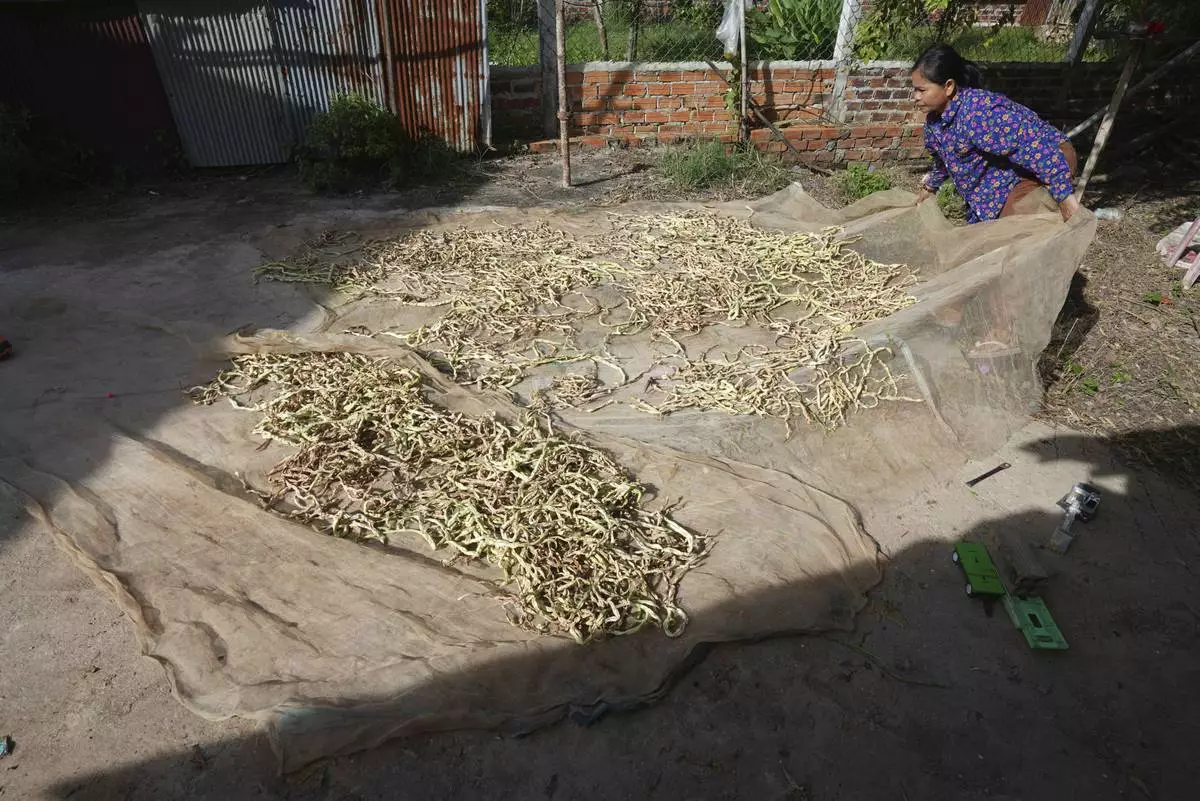
Norng La, a villager who lives along the Funan Techo Canal dries her long beans at her home at Prek Takeo village, eastern Phnom Penh, Cambodia, Tuesday, July 30, 2024. (AP Photo/Heng Sinith)
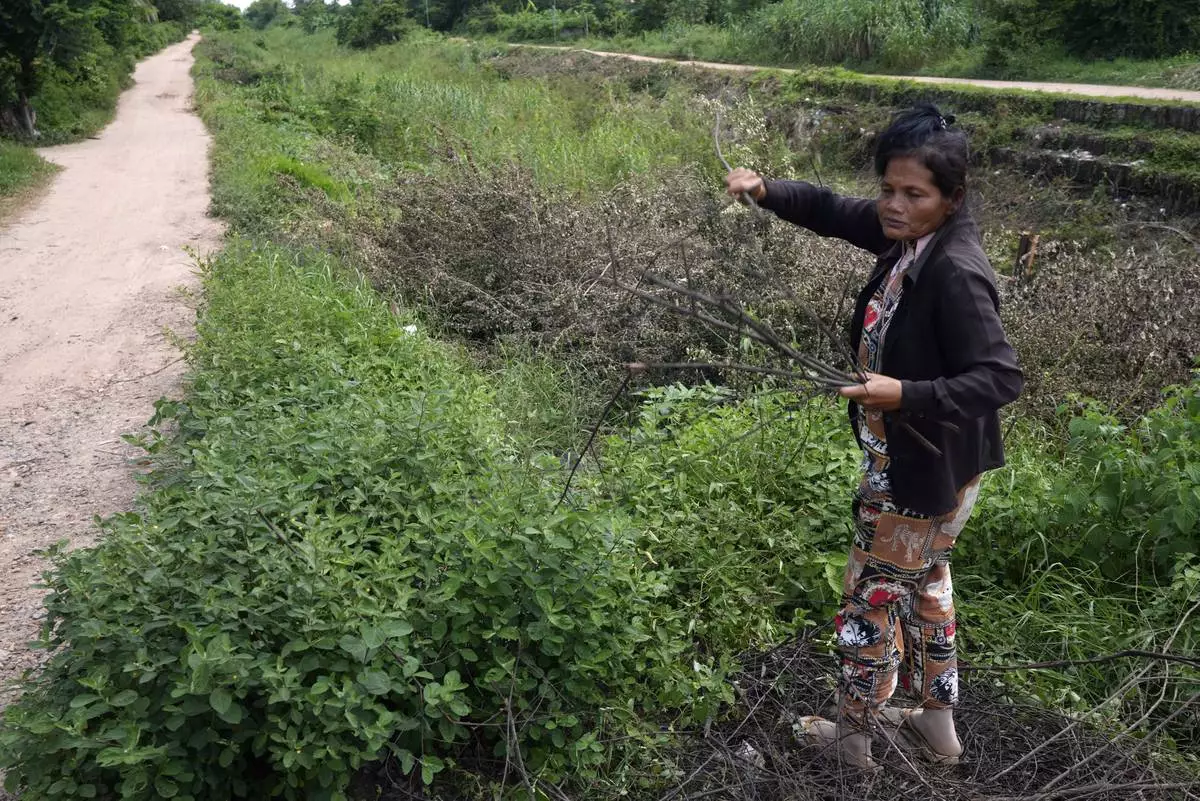
Sok Koeun, a villager who lives along the Funan Techo Canal, collects firewood for cooking at her home at Prek Takeo village, eastern Phnom Penh, Cambodia, Tuesday, July 30, 2024. (AP Photo/Heng Sinith)
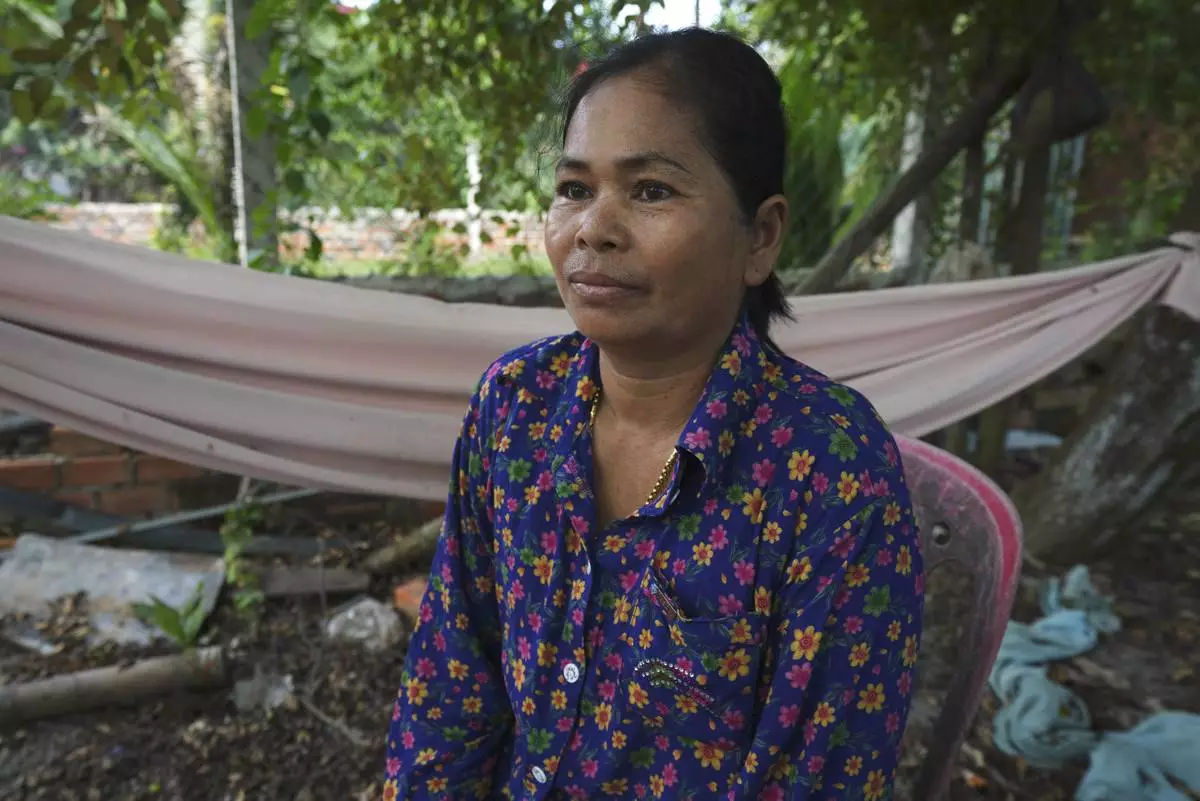
Norng La, a villager who lives along the Funan Techo Canal, is interviewed by The Associated Press at her home at Prek Takeo village eastern Phnom Penh Cambodia, Tuesday, July 30, 2024. (AP Photo/Heng Sinith)
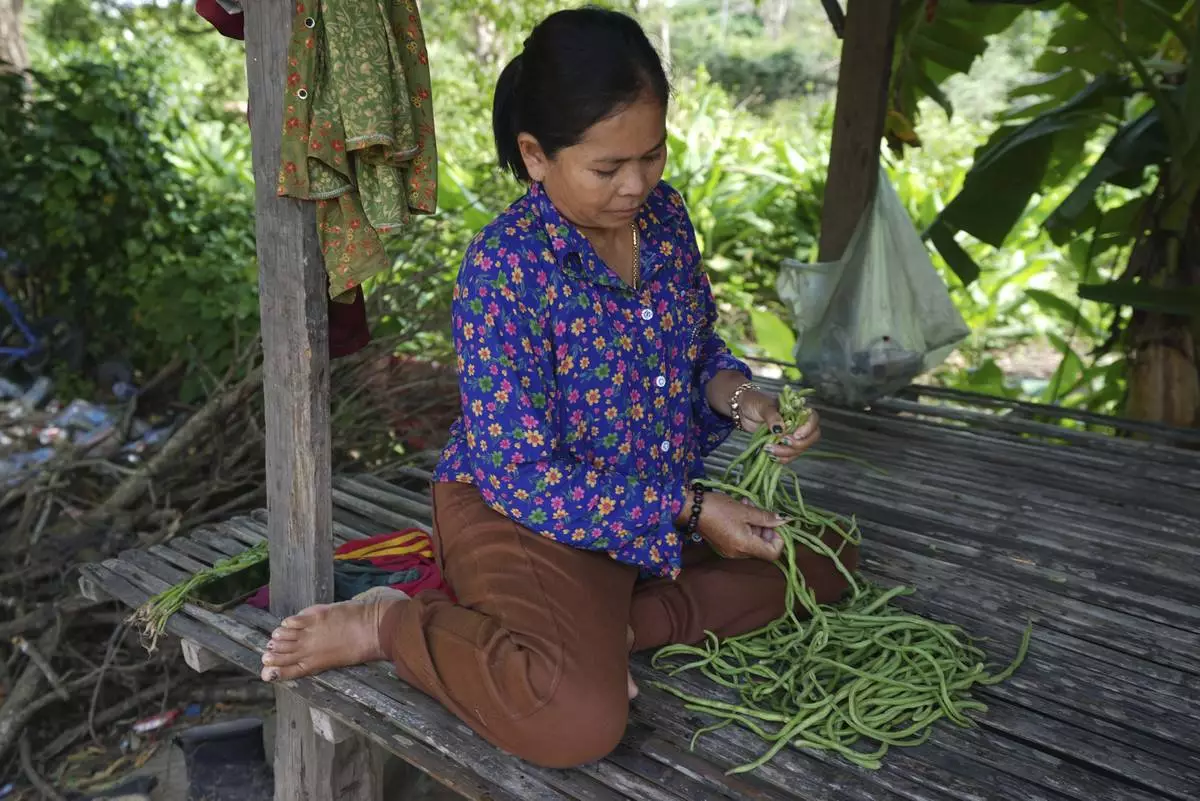
Norng La, a villager who lives along the Funan Techo Canal, prepares vegetable for her dinner at her home at Prek Takeo village, eastern Phnom Penh Cambodia, Tuesday, July 30, 2024. (AP Photo/Heng Sinith)
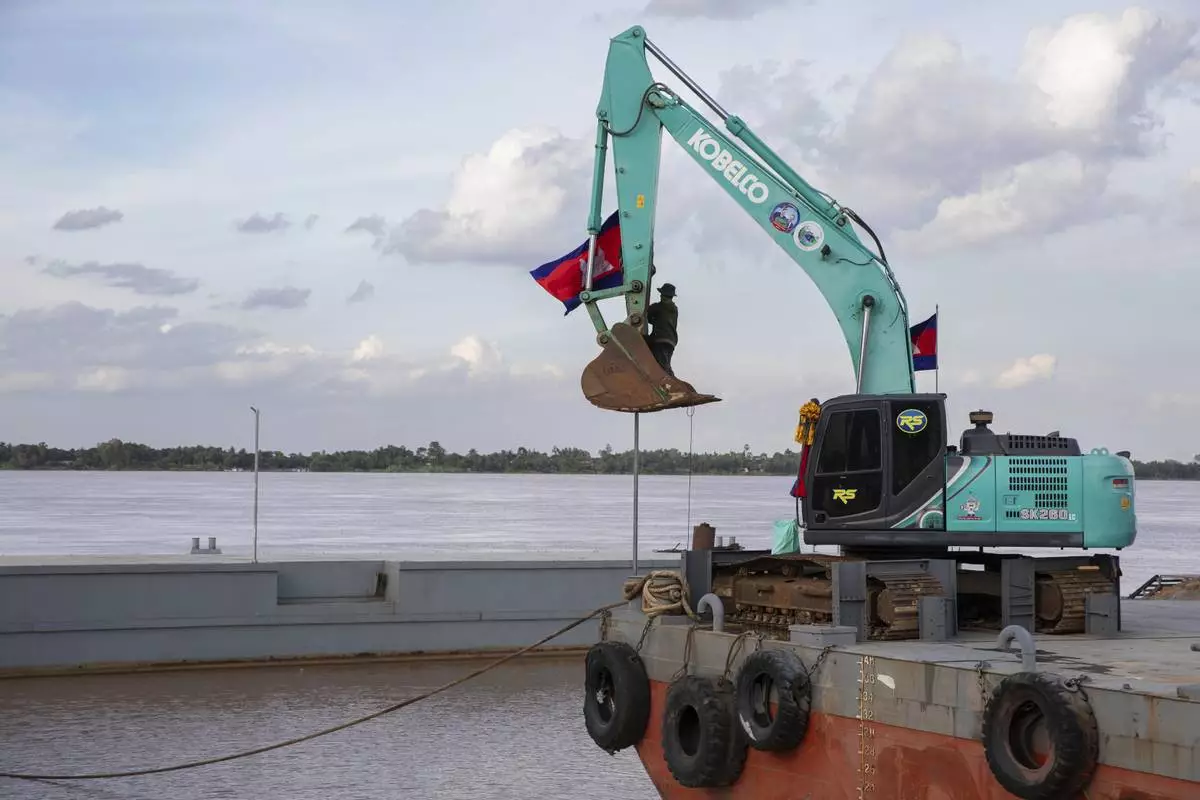
A worker raises a Cambodian flag with the help of an excavator on a barge by the mouth of a canal, at Prek Takoe village, Phnom Penh, Cambodia, Tuesday, July 30, 2024. (AP Photo/Anton L. Delgado)
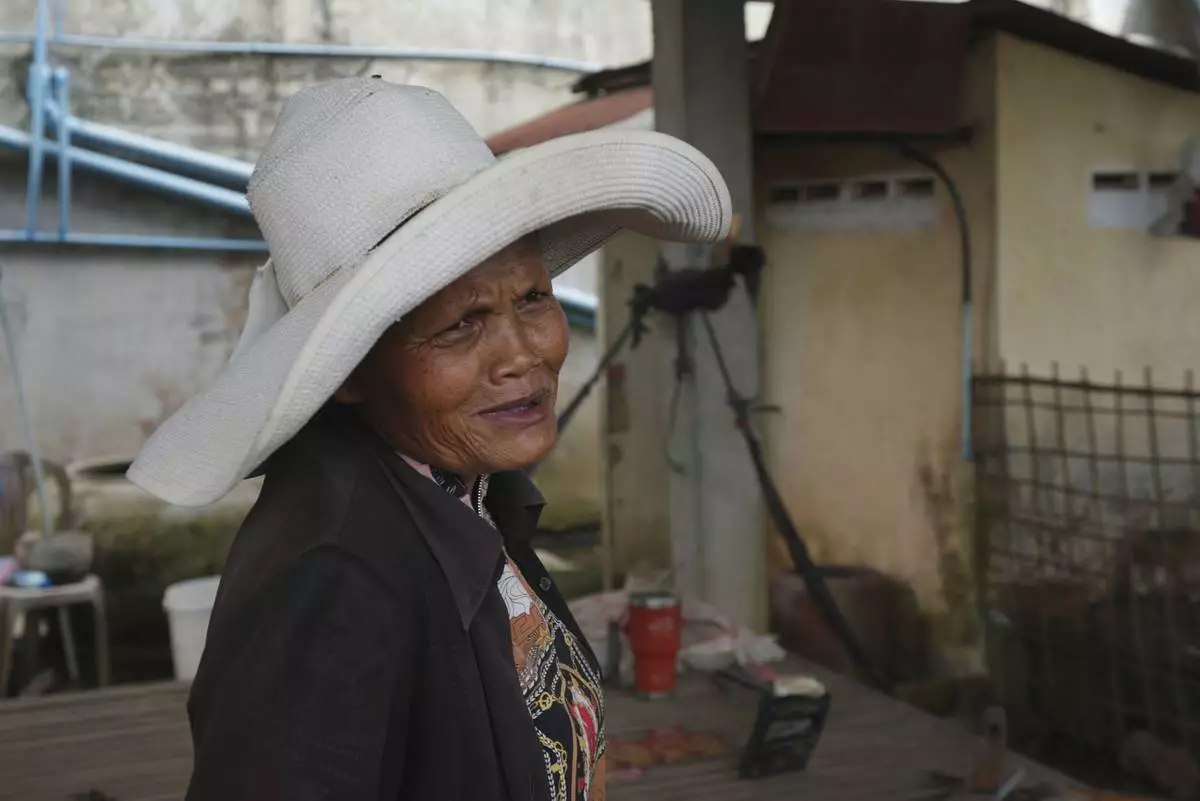
Sok Koeun, a villager who lives along the Funan Techo Canal, is interviewed by The Associated Press at her home at Prek Takeo village, eastern Phnom Penh Cambodia, Tuesday, July 30, 2024. (AP Photo/Heng Sinith)
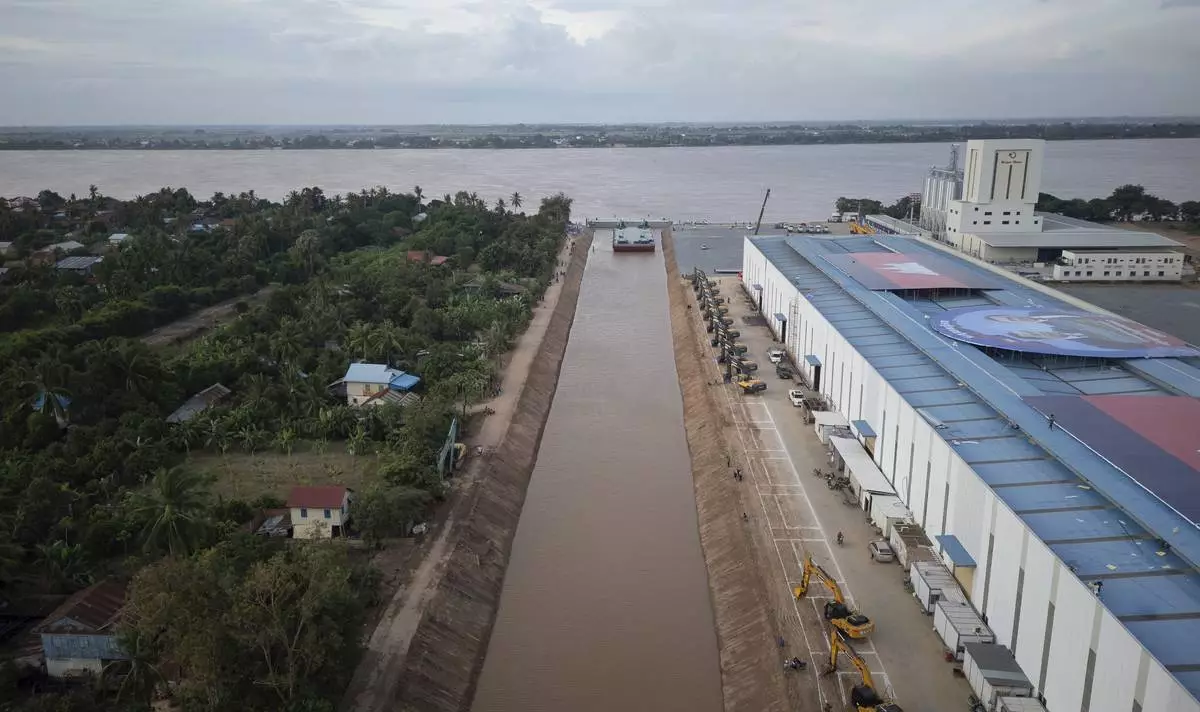
A view of the canal at Prek Takoe village eastern side of Phnom Penh, Cambodia, Tuesday, July 30, 2024. (AP Photo/Anton L. Delgado)
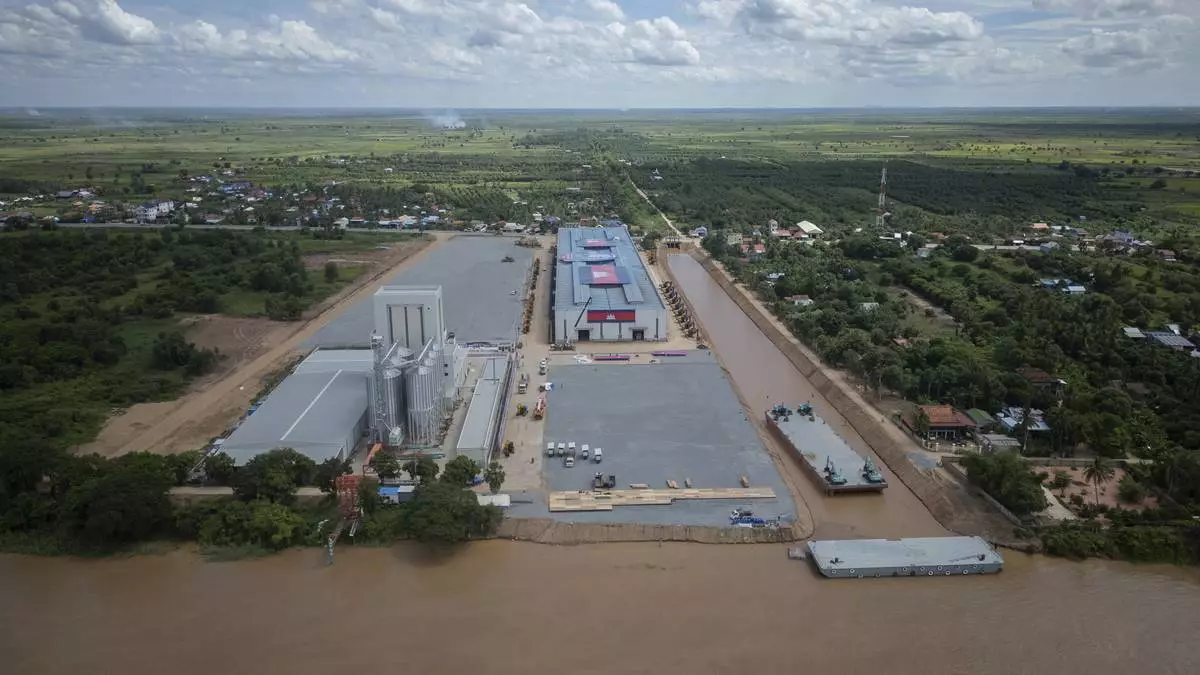
A view of the canal at Prek Takoe village eastern side of Phnom Penh, Cambodia, Tuesday, July 30, 2024. (AP Photo/Anton L. Delgado)








